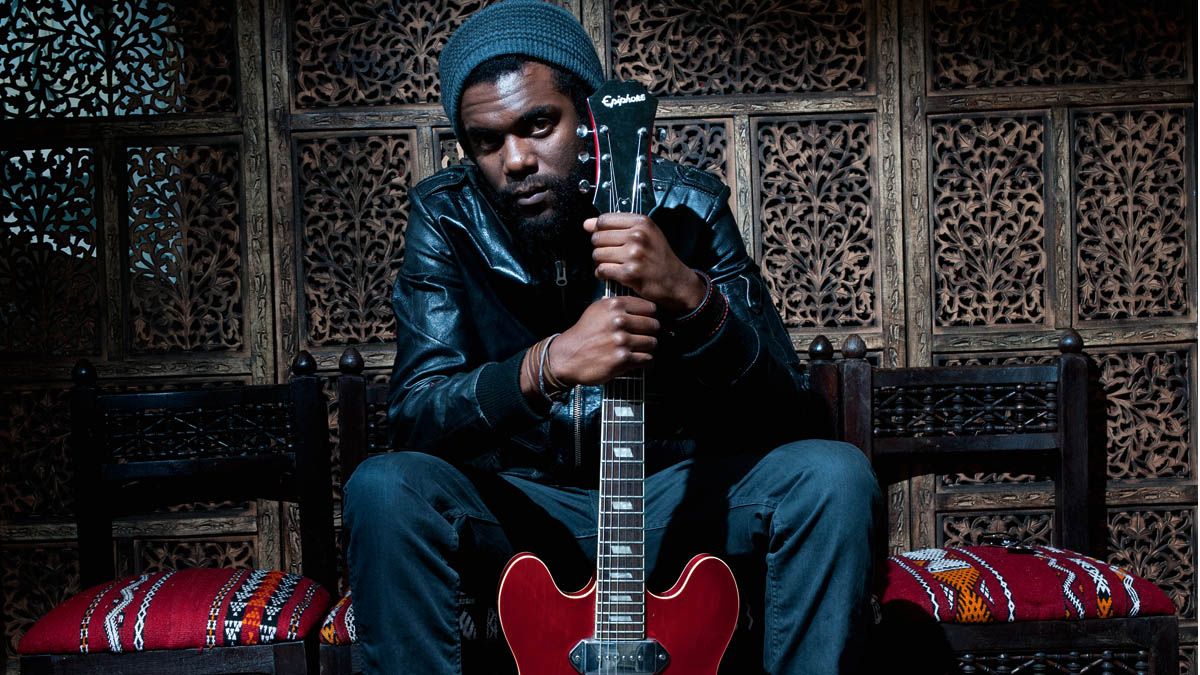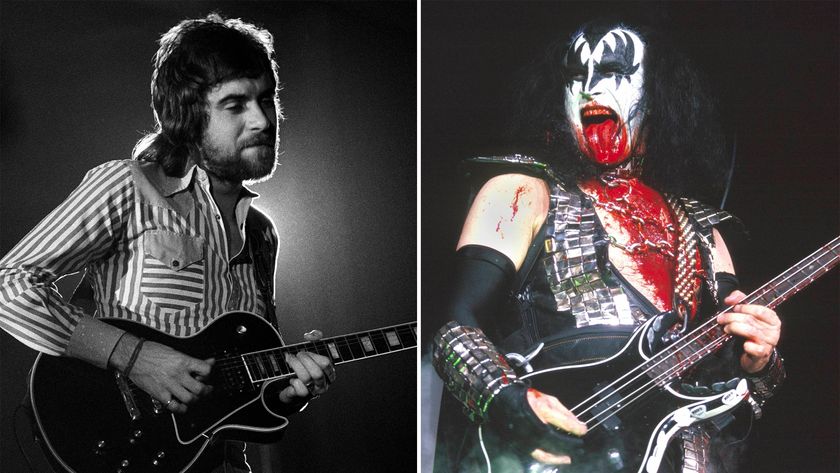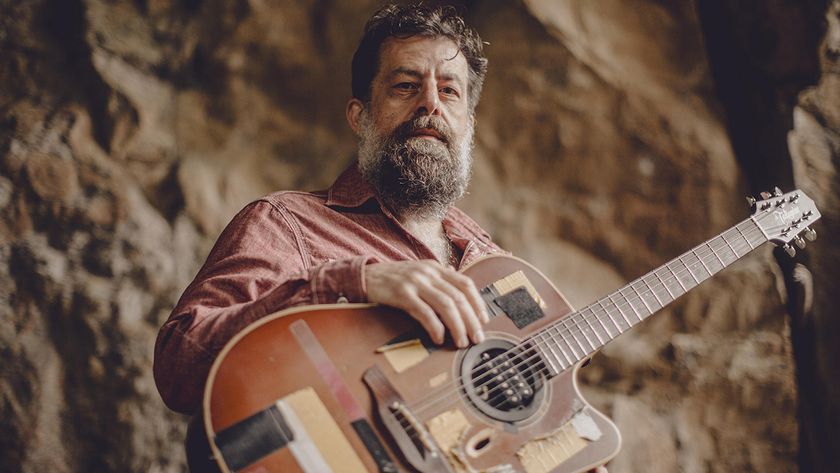Gary Clark Jr: "I got my education from Chuck Berry and Jimi Hendrix more than going to grade school"
How the modern blues trailblazer has defied convention and broken the mould in order to find himself, pushing the genre in new directions along the way…

It would be fair to say singer/guitarist and multiple Grammy winner Gary Clark Jr. has a complicated relationship with the blues.
On one hand, he learned virtually everything he knows about music from growing up in Austin, Texas – starting with his experiences at the local Baptist church where he backed the choir and later at Antone’s, the club in which Stevie Ray Vaughan and his elder brother Jimmie had famously cut their teeth some decades prior.
These early years were pivotal in moulding Clark as one of the most commercially successful, critically revered and musically diverse guitar heroes of the modern age – a man who’s played with everyone from BB King and Jeff Beck to Alicia Keys and Foo Fighters and comfortably held his own...
“The first time I walked into Antone’s was kinda mind-blowing,” he told this writer around the release of his 2015 album, The Story of Sonny Boy Slim. “It was something I don’t really know how to describe, there was this feeling that brought depth to my life. Clifford Antone [now deceased] took me in and brought me under his wing. He introduced me to Jimmie Vaughan, Hubert Sumlin, Calvin ‘Fuzz’ Jones, Pinetop Perkins – all these greats that played with Muddy Waters or Howlin’ Wolf.
Guitar started off as an accompanying instrument and ended up out front thanks to Chuck Berry and Jimi Hendrix
“I learned a lot about history and a lot about myself as a black man in white culture. I don’t want to turn this into a race thing, but it got real for me, as far as understanding where things came from in terms of the evolution of guitar playing – it starting off as an accompanying instrument and ending up out front thanks to Chuck Berry and Jimi Hendrix.
“They’re the guys who started this whole thing. It was an eye-opener for me, a place where I got my education, more so than I did from going to grade school. Not to discredit school, it’s important for kids to stay in school! But for me, it was a great learning experience that shaped who I am today. I’m very grateful for it.”
Fast-forward a few years to the writing sessions for latest album This Land, however, and the notion of being any kind of modern blues saviour was not sitting well with him at all.
Get The Pick Newsletter
All the latest guitar news, interviews, lessons, reviews, deals and more, direct to your inbox!
Clark felt stuck creatively and typecast as a one-trick pony, unable to shake off the feeling that he was stagnating in a genre that’s often too guilty of sticking to tried-and-test formulas.
He’d won all kinds of awards, gotten his major label deal, played at the White House for former President Barack Obama and received a letter from Eric Clapton with an unforgettably powerful admission. “Thank you,” Clapton wrote. “You make me want to play again”.
But it just wasn’t enough. In order to move forward, Gary Clark Jr. had to rethink, re-evaluate and reinvent himself – and ultimately draw on his soul, funk and hip-hop influences more than ever before...
“The whole soul thing came from my parents,” he explained in a later interview with this writer. “My dad was like a soul brother and kinda funky. There are pictures of him with a big-ass fro and the bell-bottoms, and my mother was pretty righteous. They grew up in the era where it was all afros, shiny suits and disco lights. Bands like The Temptations, The Spinners, Parliament, Maze, Al Green, Marvin Gaye and The Jackson Five – all their classic records were playing in my house while I was growing up...
“I remember seeing Tito Jackson with the 335 and long hair and thinking he was pretty cool. Also Curtis Mayfield – man, those tones rang out and resonated with me. One of the songs I really loved as a kid, especially because of the guitar, was With A Child’s Heart, from one of Michael Jackson’s first solo albums. The guitar tone was really beautiful, with loads of subtle hammer-ons over these gorgeous chord changes. I remember thinking to myself, ‘Woah, I want to play guitar one day and sound like that.’”
As fate would have it, the young Texan’s hopes and dreams would eventually become reality, and – having just announced a 35-date North American tour as special guest to indie rock heavyweights The Black Keys – he stands today not only as one of the most important crossover artists to embrace and embody the blues, but also the musician best poised to propel it to new heights.
“You do things musically by reaching back and pulling from the foundation to push it all forward,” he explains to TG. “That’s how I am in life and how I am as a person. I grew up in a house where I was taught to respect your elders and where you come from – remember who you are – but also to look forward. Encourage yourself to push the limits and see how far you can go...”
Amit has been writing for titles like Total Guitar, MusicRadar and Guitar World for over a decade and counts Richie Kotzen, Guthrie Govan and Jeff Beck among his primary influences as a guitar player. He's worked for magazines like Kerrang!, Metal Hammer, Classic Rock, Prog, Record Collector, Planet Rock, Rhythm and Bass Player, as well as newspapers like Metro and The Independent, interviewing everyone from Ozzy Osbourne and Lemmy to Slash and Jimmy Page, and once even traded solos with a member of Slayer on a track released internationally. As a session guitarist, he's played alongside members of Judas Priest and Uriah Heep in London ensemble Metalworks, as well as handled lead guitars for legends like Glen Matlock (Sex Pistols, The Faces) and Stu Hamm (Steve Vai, Joe Satriani, G3).

“Zal is really nobody’s guitar hero. Fans say he’s the most underrated player ever; many guitarists rate him amongst the best... but I’ve never heard anyone call him their ‘guitar hero’”: Billy Rankin on lessons learned from the legendary Zal Cleminson

“I had to use the same microphone that Gene Simmons used with all the blood coming out of his mouth. Can you imagine that!”: Mick Rogers recalls Kiss supporting Manfred Mann's Earth Band in their early days









